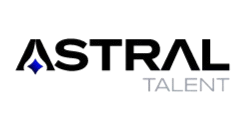In the Middle East’s dynamic business landscape, where tradition meets innovation, the role of sales professionals takes center stage. As businesses compete for market share in one of the world’s fastest-growing regions, the choice of sales archetype—hunters, farmers, or hybrids—becomes crucial. Each brings a distinct skill set and approach and understanding their compatibility with the unique characteristics of the Middle Eastern market can be the difference between thriving and just surviving.
The Middle East Sales Landscape: A Unique Opportunity
The Middle East is an exciting yet challenging region for business growth. According to PwC’s report on GCC economic themes, ‘in 2025, the GCC is expected to remain economically resilient and effectively navigate the anticipated challenges of declining oil revenues and geopolitical fragmentation.’
With its rapidly diversifying economies—like the UAE transitioning to a knowledge-based economy—and ambitious visions such as Saudi Arabia’s Vision 2030, opportunities abound. However, navigating cultural nuances, regulatory differences, and relationship-driven business dynamics requires strategic planning and a tailored approach to sales.
The Three Sales Archetypes: Hunters, Farmers, and Hybrids
Before diving into their relevance to the Middle East, let’s define these archetypes:
Hunters:
Hunters are go-getters. They excel at identifying new opportunities, winning new clients, and driving rapid growth. Their focus is on acquiring market share and increasing revenue streams, often in high-pressure environments. Hunters are ideal for businesses in their growth stage or looking to enter new markets. They are known for their hyper-focus and skill with various approaches, motivated primarily by the thrill of the hunt.
Farmers:
Farmers prioritize nurturing existing relationships. They ensure customer satisfaction, drive retention, and encourage upselling or cross-selling opportunities. In regions like the Middle East, where trust is paramount, farmers are essential for maintaining a loyal client base. They work more slowly, with a longer time horizon, cultivating relationships and nurturing prospects.
Hybrids:
Hybrids are versatile professionals who blend the best of both worlds. They can acquire new clients while maintaining and expanding existing relationships. Hybrids are particularly suited for businesses that need flexibility and adaptability in their sales approach. They combine the outgoing nature of hunters with the empathy and people-orientation of farmers, making them effective in roles that require both hunting and farming skills.
Aligning Sales Archetypes with Middle Eastern Dynamics
The choice of sales archetype depends largely on your industry, business stage, and regional nuances. Here’s how each archetype aligns with the Middle Eastern market:
Hunters in the Middle East:
Ideal for: Startups, market entrants, or companies launching new products.
Why hunters thrive: The region’s high-growth sectors, such as tech, e-commerce, and renewable energy, are ripe for disruption. Hunters bring the aggressive, results-driven approach needed to quickly penetrate these markets.
Challenges: Hunters may struggle with the relationship-driven culture in the Middle East. Their emphasis on quick wins must be balanced with efforts to establish trust and credibility. Additionally, the high assertiveness of hunters can be a detriment when interacting with some prospects in today’s sales environment.
Farmers in the Middle East:
Ideal for: Established businesses aiming to deepen customer relationships.
Why farmers thrive: In the Middle East, business is deeply personal. Farmers excel at maintaining relationships, ensuring client satisfaction, and delivering value over time. This is particularly important in sectors like finance, healthcare, and luxury goods, where trust and loyalty drive repeat business.
Challenges: Farmers may struggle to generate rapid growth if new client acquisition is deprioritized. They may also be vulnerable to sudden changes in the market or loss of key accounts.
Key Considerations for Businesses in the Middle East
Cultural Sensitivity:
Understanding cultural and social nuances is critical for business success in the Middle East. Sales professionals must be adept at navigating these intricacies, particularly in relationship-driven sectors. This is especially important given the region’s emphasis on trust and personal relationships in business.
Industry-Specific Needs:
Different industries demand different sales approaches. For example, complex B2B sales in the region may require a more consultative approach, blending elements of hunting and farming.
Local Expertise:
Hiring or training sales professionals who understand the Middle Eastern markets, including legal and regulatory frameworks, can give businesses a competitive edge. his is particularly crucial given the diverse regulatory environments across different Middle Eastern countries.
Technology Integration:
The adoption of CRM systems and sales analytics can empower hunters, farmers, and hybrids alike to perform at their best. Leveraging technology can help sales professionals in the Middle East better understand customer needs and tailor their approach accordingly. According to McKinsey’s ‘By the numbers: What drives sales-growth outperformance’ report, ‘most sales organizations have plenty of digital tools. The problem is that their reps ignore them. Poor user interfaces, unclear use cases, or confusing recommendations condemn many would-be enablers to the trash heap. Sales leaders emphasize digital tool building. But they place equal focus on adoption—involving sellers in the design to build trust in the system, creating solutions that address key seller pain points, and making those tools intuitive and easy to use. The combination of smart tools and strong adoption translates to higher sales.’
Flexibility in Sales Models:
Consider implementing a flexible sales model that allows for both hunting and farming activities. Some organizations successfully deploy both pure hunters and generalists against the same customer segment, with hunters focusing on new territories and generalists covering established ones
As businesses expand in the Middle East, the right sales archetype could be your key to unlocking sustainable growth. Remember, the most effective approach may involve a strategic combination of hunters, farmers, and hybrids, tailored to your specific business needs and the unique characteristics of the Middle Eastern market.
Are you ready to choose wisely?
Astral Talent’s Strategic Sales Advisory can help you identify and hire the right sales team to enable you to reach your business goals. Get in touch to discuss how.

